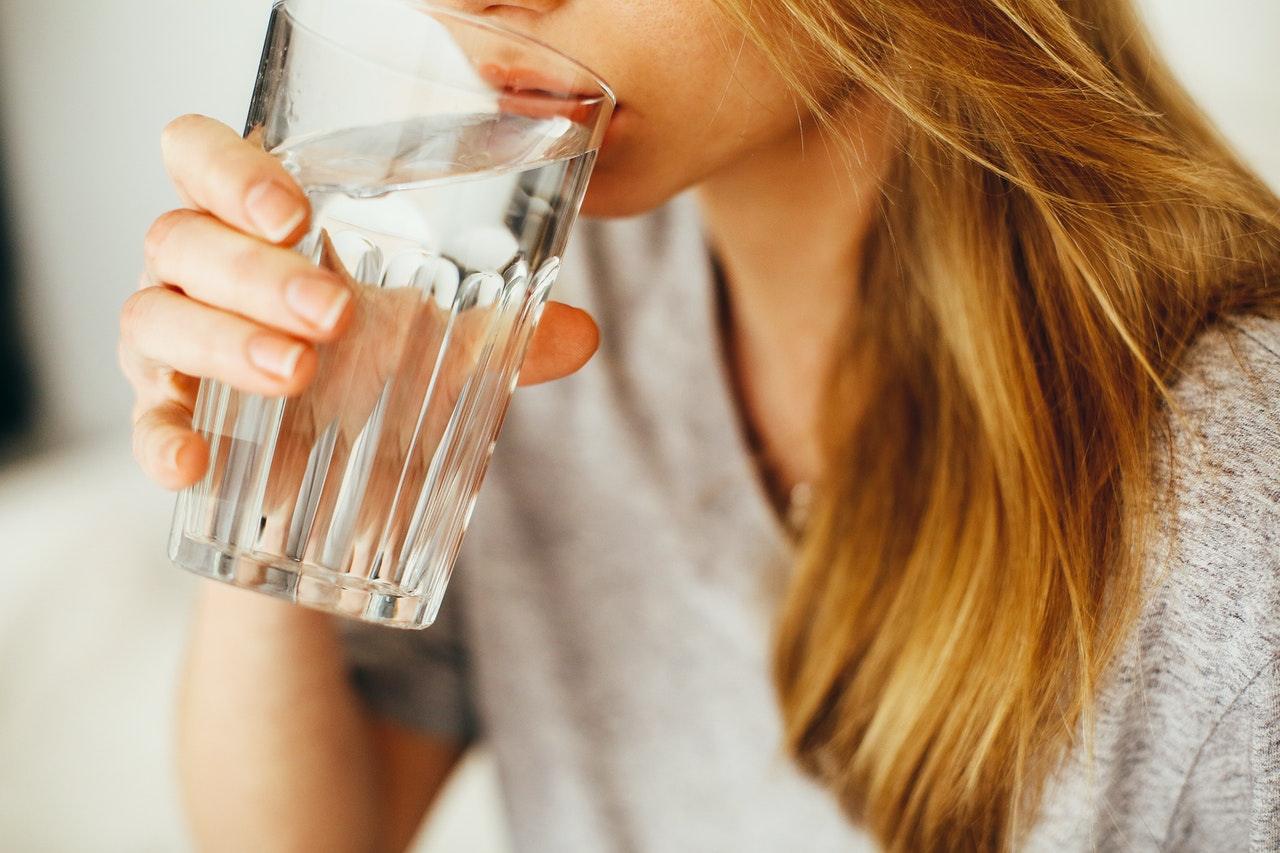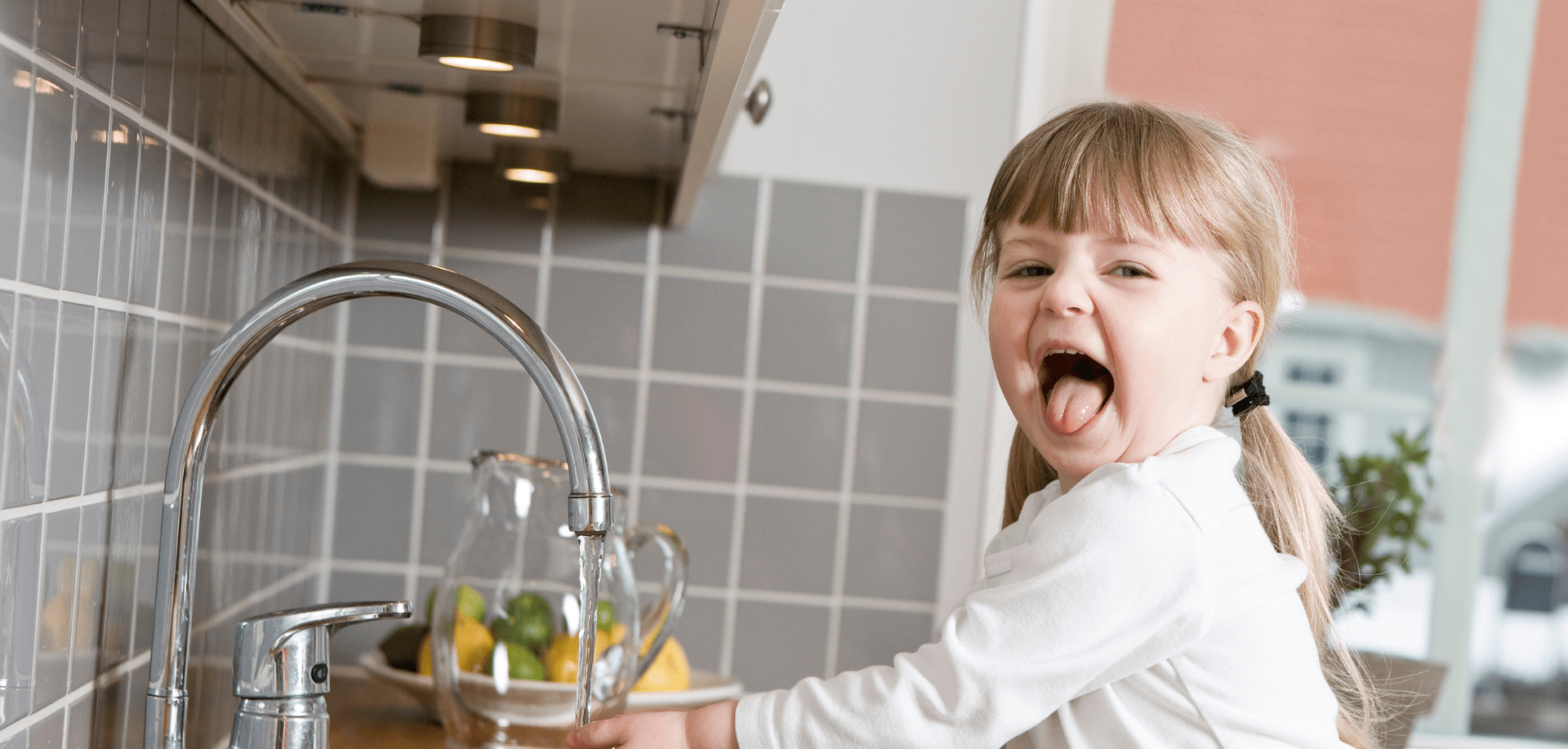Is softened water safe to drink?


Softened water is safe to drink. There are a few precautionary exceptions, but it’s mainly a matter of whether you choose to drink it.
It is important to be aware of any potential health effects of drinking softened water. Whether you decide to drink softened water or not will ultimately be based on your personal preference or health concerns. We’ve put together this guide to help you make an informed choice on whether or not to drink water from a water softener system.

Most water softeners work by removing the minerals present in hard water, such as magnesium and calcium. Through a process called ion exchange, magnesium and calcium ions are replaced with sodium instead. The water softening process uses sodium to catch and cleanse the unwanted minerals.
This means that softened water contains a small amount of sodium – but this is different to the salt you might put into your cooking.
A common misconception is that sodium and salt are the same thing – but this is not true. Common salt consumed in food every day, such as table salt or rock salt, is sodium chloride, rather than pure sodium.
Concerns about drinking soft water typically stem from worries about the levels of sodium present in water that has passed through a softening system – because the systems use blocks or bags of salt. But the softener salt is only used to soften the resin that acts on the water – no salt gets into the water supply itself.
In softened water, the sodium level increases. The level of salt found in softened water will depend on your water hardness levels in your area. Areas with especially hard water will require more salt to soften the water, and therefore the softened water contains higher sodium levels.
Despite increased levels of sodium, softened water typically doesn’t contain an unsafe amount. The Drinking Water Inspectorate (DWI) states that water with a sodium content of up to 200ppm is safe to drink. Unless your water is very hard to start with, the softened version is unlikely to exceed this.
The NHS states the average adult should consume a maximum of 6g of salt per day, which equals 2,325.5 mg of sodium. In the average hard water area, a 250ml glass of softened water would contribute to just 1% of your daily sodium intake.
In any case, it is important to be aware of the potential health problems that may arise from consuming too much sodium in softened water, as regulated by Water Regs UK.
Most people can drink softened water with no issues. Water softeners remove calcium and magnesium ions from the water, making it safe to drink, even in locations with very hard water.
However, there are certain types of people who should not drink water that has come from a softening system.

It is generally not recommended to use softened water for baby feed, particularly for babies aged six weeks and younger. This is because babies may not have fully developed kidneys, meaning the additional sodium can upset their natural balance and lead to dehydration. Harvey Water Softener systems are fitted with a regular tap to supply your normal hard water to your home for purposes like this. Check with your medical team if you’re unsure about what water to use for baby feed.
For people who have been advised by their doctor to maintain a low-sodium diet, it is recommended to avoid drinking softened water.
If you want softened water, your home’s water hardness needs to be checked by an expert to ensure that you receive the correct water softener for your household. Our experts will advise you if your softened water could contain a high amount of sodium ions. A water filter could be another solution as these will remove unwanted impurities without adding sodium.
Hard water is safe to drink. In fact, many areas of the UK are already supplied with hard water which contains natural levels of sodium. Areas with extreme water hardness (400-435ppm calcium carbonate) contain the highest levels of sodium. Harvey Water Softeners systems can soften water with up to 435ppm calcium carbonate.
If you live somewhere with the highest level of hardness, a soft water system would exceed the recommended sodium level as a result of the softening process. In cases like this, we would recommend you have a filtered drinking water tap alongside your softener to supply you with unsoftened water to drink.

Many people choose to have a drinking water tap installed at the same time as their softener. This tap bypasses the water-softening device and produces filtered hard water for you and your family to drink, rather than softened water.
When we fit a water softener, a separate unsoftened drinking water tap will be fitted if the sodium limit exceeds 200 mg/l, or simply if you would prefer a hard water supply – preferably be at the kitchen/utility sink.
Our range of drinking water taps can be connected to your water softener for fresh drinking water in your home. Choose from a range of 3-way taps, including Classic, Renaissance, and Deco.
The well-being and happiness of our customers are our top priority. Throughout the history of Harvey Water Softeners, we’ve kept one thing true: if our customers are concerned about something, we make it our concern too.
Our informed approach to the issue of sodium levels in drinking water comes from the expertise gained over thirty years in the industry.
By offering the right information and installing a bypass filter tap as standard, we see more of what we strive for – satisfied customers!
To find out what the sodium content of softened water would be in your home, book a demonstration with a Harvey soft water expert. They can test the hardness of your current water supply and calculate what the sodium content would be after softening. They can explain how a drinking water tap is easily installed at the same time as your water softener.
Get in touch with us today to learn more about the benefits of a water softener.